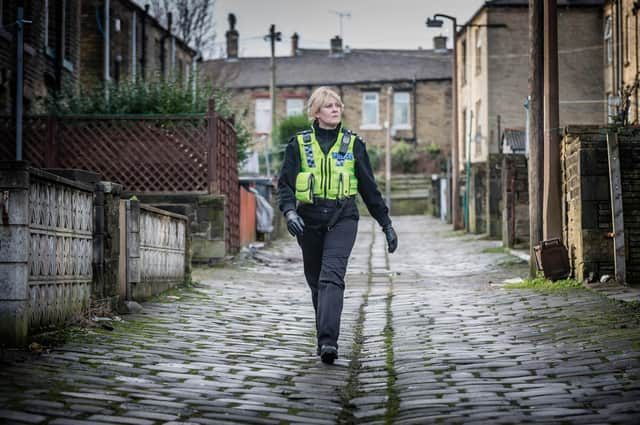The BBC needs to make more Happy Valleys - but its anti-competitive obsessions are stopping it from doing so


The BBC desperately needs more triumphs like Happy Valley - but there is little chance of that while it is obsessed by purging itself of popular older radio presenters, spreading itself too thinly and waging an anti-competitive battle with quality local newspapers and their websites.
These are tough times for the BBC. According to TV Licensing’s annual report last year, 1.96 million households said they did not watch the BBC or other live television in 2021-22, and the corporation believes even more will desert them this year. In a survey by National World a couple of years ago, 95% of respondents said the licence fee should not remain compulsory.
Advertisement
Hide AdAdvertisement
Hide AdIs it any surprise? Outside primetime BBC One, its TV networks are stacked with repeats and old black and white movies. With its narrow, warped sense of editorial values it is growing ever more remote from the public it seeks to serve.
In the intervening time, the cost of living crisis has made the annual £159 licence fee - a compulsory tax whether you watch the BBC or not - seem even more unaffordable, the streaming market has grown even stronger with Disney Plus really finding its feet alongside Sky and Netflix, and the BBC has become obsessed with growing local news websites.
Really? Local news websites? This is an area already served superbly well by traditional local newspaper publishers like our parent company National World - and the BBC's monopolistic intervention simply makes it harder for commercial publishers, who stand on their own two feet without cash handouts from the taxpayer, to fund the independent quality local journalism that communities want. And the BBC acknowledges that expanding their local news will impact the audience for commercial publishers and their revenues - in turn putting at risk local newspapers too.
The BBC should be investing its £3.8 billion a year licence fee bonanza in more Happy Valleys, more Line of Duty, more The Traitors, more Strictly, more quality wildlife programmes, and more serious cultural content, a role that has been usurped by the free to air Sky Arts channel. By strengthening its core offering in this way it can take the global streaming giants head on.
Advertisement
Hide AdAdvertisement
Hide AdBut it is so consumed with trying to unfairly steal audience share from hard-pressed local publishers with its ad-free local news websites paid for by taxpayers that last week it was forced into a humiliating apology to the Manchester Evening News (which is not published by this company.) The corporation said sorry to the MEN for “lapses in editorial standards” over a number of claims broadcast during a segment on Radio 4’s flagship Today Programme.
The BBC's plans will see a redeployment of resources from much-loved BBC radio to daily online news for 43 local areas, with the creation of 11 investigative reporting teams across the country and around 131 additional roles across local news services, with local stories made easier to find. The BBC will also launch new dedicated local online services for Bradford, Wolverhampton, Sunderland and Peterborough.
The Charter requires the BBC not to act in a way that distorts the commercial marketplace yet by aggressively expanding its local news offering into markets already well served by commercial providers, it will do just that, diverting eyeballs and revenues away from independent commercial providers of local news, at a critical time for them. The BBC’s own analysis acknowledges this. Far more jobs will potentially be lost than will be created.
Local journalism published by commercial providers is in high demand from audiences with 40 million people accessing local news in print or digital every month, according to JICREG. However, the BBC’s plans will put all that – and the benefit it provides to the public – in jeopardy.
Advertisement
Hide AdAdvertisement
Hide AdThe BBC needs to scrap these plans. Instead it should put its own house in order. It needs to commission a whole lot more quality TV - and position itself for a world in which it is no longer dependent on the licence fee but can go head-to-head with Netflix around the globe.
Spoiler alert - Happy Valley had a happy conclusion, of sorts. Many people still love the BBC - but it needs to dramatically reappraise its priorities if it is to survive and thrive as a respected, quality television and radio broadcaster.
Gary Shipton is the editorial director of National World plc's Sussex titles
Comment Guidelines
National World encourages reader discussion on our stories. User feedback, insights and back-and-forth exchanges add a rich layer of context to reporting. Please review our Community Guidelines before commenting.